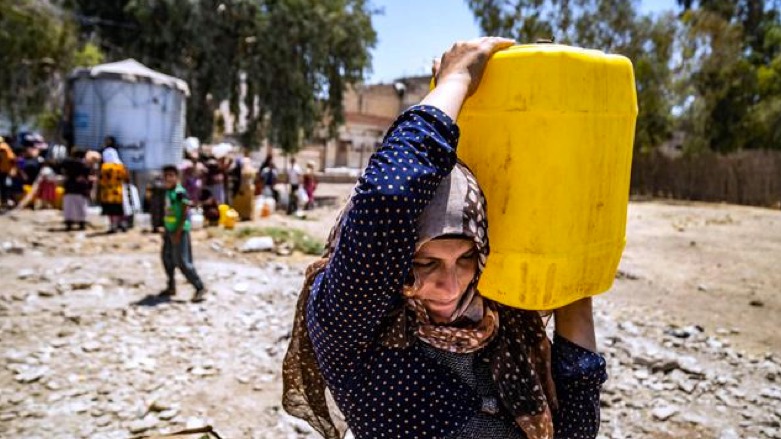Autonomous administration continues to increase salaries in northeast Syria

ERBIL (Kurdistan 24) – The Kurdish-led Autonomous Administration of North and East Syria (AANES) this week increased salaries of local employees due to worsening economic conditions and inflation of the Syrian pound.
“In light of our people facing economic hardship and the plummeting value of the Syrian pound compared to the US dollar, leading to steep increase in household products prices, the AANES has raised the minimum salary of its employees, from 360,000SYP/month (around $40) to 520,000 ($70),” Samantha Teal, a researcher from the Syria-based Rojava Information Centre (RIC) told Kurdistan 24.
“While the AANES greatly subsidizes diesel and bread, other essential items have become unaffordable for many in recent months. The decision, therefore, has been met with great relief,” she added.
Moreover, members of the Syrian Democratic Forces (SDF) have increased salaries from 550,000SYP/month (nearly $72) to 750,000SYP/month ($100), the Rojava Network announced on Twitter.
Previously, in October 2022, the AANES increased the salaries of its employees due to worsening economic conditions and rise in inflation.
The inflation of the Syrian pound has made it difficult for people to make ends meet, and many have struggled with rising prices for basic goods and services.
As a result, there has been an increase in poverty, and some people have attempted to migrate abroad in search of better economic opportunities.
The AANES has been working to address these challenges through a range of measures, including efforts to stimulate local economic activity and support for small businesses.
However, the conflict in the region, ongoing sanctions, and the continued threat of a new Turkish military offensive have made it difficult to achieve sustained economic growth and stability.
Despite relaxed US sanctions on northeast and northwest Syria last year, the economic situation remains dire.
